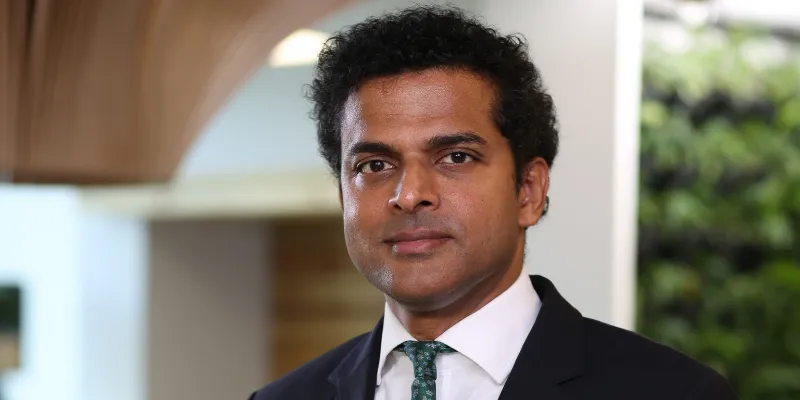How Max Life Insurance successfully built a direct to consumer digital commerce platform
Max Life Insurance adopted a very focused approach to onboard the millennial population by building a direct to consumer digital channel from scratch. It has now started to pay rich dividends.
Life insurance policies have predominantly been sold to consumers indirectly - either through agents or banks. The emergence of digital commerce, though, has changed the dynamics here.
Moving with the times and adapting to changing consumer behaviour is private insurance company Max Life Insurance. As India’s largest non-bank private-sector insurer, the company has focused on creating an online channel where customers could go about buying policies without any intermediary in a safe and secure manner.
At one of their periodic strategy review meetings about seven years ago, Max Life Insurance realised that there was a clear disconnect between agents and customers due to increasing difference in age. Many of their agents were missing out on potential clients who were below the age of 35 years.

Picture credit: Max Life Insurance
“We dug deeper to understand whether it was a supply issue or demand issue, and realised that it was the former. The mission was how to make ourselves attractive to millennials or generation Z,” says V Viswanand, Deputy Managing Director, Max Life Insurance.
The company had a blank canvas when it came to foraying into digital commerce. But first, they needed to understand the mindset of the relatively untapped potential customers.
Customer mindset
Consumer research revealed that this untapped customers’ average age group was around 33 years, most had an annual income of around Rs 10 lakh, and came with high education levels.
During interactions with this group of potential customers, the general feeling was that of apprehension about the kind of policies that were sold.
“Many of potential online customers who were millennials wanted protection terms but instead, they were sold savings plans,” says Viswanand.
Protection plans are typically pure term insurance policies where the premiums are low, and the insurance benefits are can be availed only in the case of death of a family member.
In many cases, customers were also unsure about the claims process, which Viswanand terms as a huge trust deficit for the industry.
Tech savvy millennials always preferred comparing policies online before making their own informed decisions on the right insurance for them. They were also not used to the usual paper work and other procedures that preceded applying for a policy offline, be it a medical checkup, filling up myriad forms, or signing multiple documents etc.

Max Life Insurance Deputy Managing Director V Viswanand
Viswanand says, “Price is not the only determinant for this category of consumers, they are more interested in product features.”
Months of feedback and iterations later, the company came to the conclusion that younger consumers preferred short term products. And thus, Max Life Insurance decided to focus on protection policies.
Digital model
The company studied the business models of their peers in countries outside India to understand their experience of digital commerce with regard to this sector.
“We found that insurance companies were wary of inter channel conflict. That’s the reason we decided to launch protection products - to minimise this conflict,” says Viswanand.
Another factor that tilted the company’s decision in favour of protection or term insurance plans was that in this category of policies, customer complaints were low but retention was high.
As Viswanand says, “We wanted to look at a product category where mis-buying was low.”
Taking all these factors into account, Max Life Insurance decided to make a strong foray into digital commerce where policies are sold and bought directly through the online route.
The company started by pulling in resources from different departments within the organisation, like product, distribution, technology and to some extent, digital; roping in employees who were attuned to this new environment or who were willing to learn.
A new beginning
In November 2013, Max Life Insurance released its first digital product called the Online Term Plan. Three years later, in 2016, it set up a digital centre of excellence.
Viswanand jocularly puts it, “We set up a completely new office away from our premises so that this team could be free from the gravity of the organisation.”
In order to establish clear accountability, Max Life Insurance made it clear that a senior person from the organisation would be the sole person accountable for this entirely new platform, where processes and products had to be created from scratch.
At the quarterly review, the top most question was always - what is the S curve growth, and were they always looking ahead into the future? Today, the digital commerce team has seen a 44 percent CAGR growth over the last three years.
In the age of ecommerce, when the internet is crowded with multiple offerings, it is the smallest things that make a difference. For example, the company was told by Google that if their page would not load in three seconds, then 53 percent of millennial customers would move on. A top tip from the King of search engines. Now, the page opens within a second, as opposed 12 seconds, when it was first launched.
Viswanand claims the online products were a raging success within six months of launch, and became a market leader in web aggregator space. In the online brokers space, he says the brand is number one.
“We are an undisputed leader in protection plans category, and consciously stayed away from insurance savings plans because it defocuses the whole operation,” says Viswanand.
Today, Max Life Insurance sells 12 percent of its policies everyday through the digital commerce channel.
Benefits
The presence of a digital commerce platform has also brought other unexpected benefits for Max Life Insurance. For instance, the entire process of recruitment of agents is now being done online, right from candidate selection, shortlisting to interviews.
“Last year, we recruited around 36,000 agents, and half of them were inducted online,” says Viswanand.
Training sessions for these agents is also virtual, where the entire onboarding journey is paperless.
From a business perspective, Max Life Insurance also witnessed its Non- Resident Indian (NRI) business doubling.
As part of its future plans, the company is looking to extend its digital commerce platform to other products like guaranteed protection or savings plans as well as annuities.
To keep itself abreast with the latest innovation in technology, the company is collaborating closely with tech startups that align with its strategy. So far, around 11 startups with expertise in areas like AR, VR, data acquisition, computer vision etc have been roped in.
“There are very interesting startups working with us and we support them financially, with the right infrastructure, knowledge and also by mentoring their ideas,” says Viswanand.
He is very optimistic about the future of the company. He says digital commerce has helped them acquire new customers at lower costs, and adds that the conversion rate through this funnel is high.
“The secret behind our success is clearly our people, processes and product. We have been disproportionately punching above our weight, with young blood generating more positivity in the company,” signs off Viswanand.
Edited by Anju Narayanan









